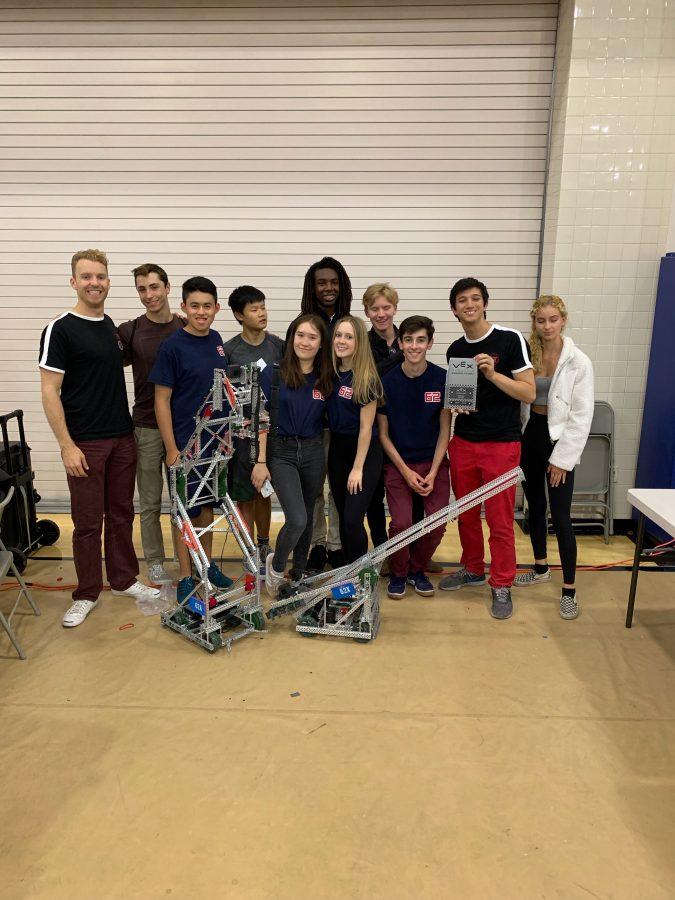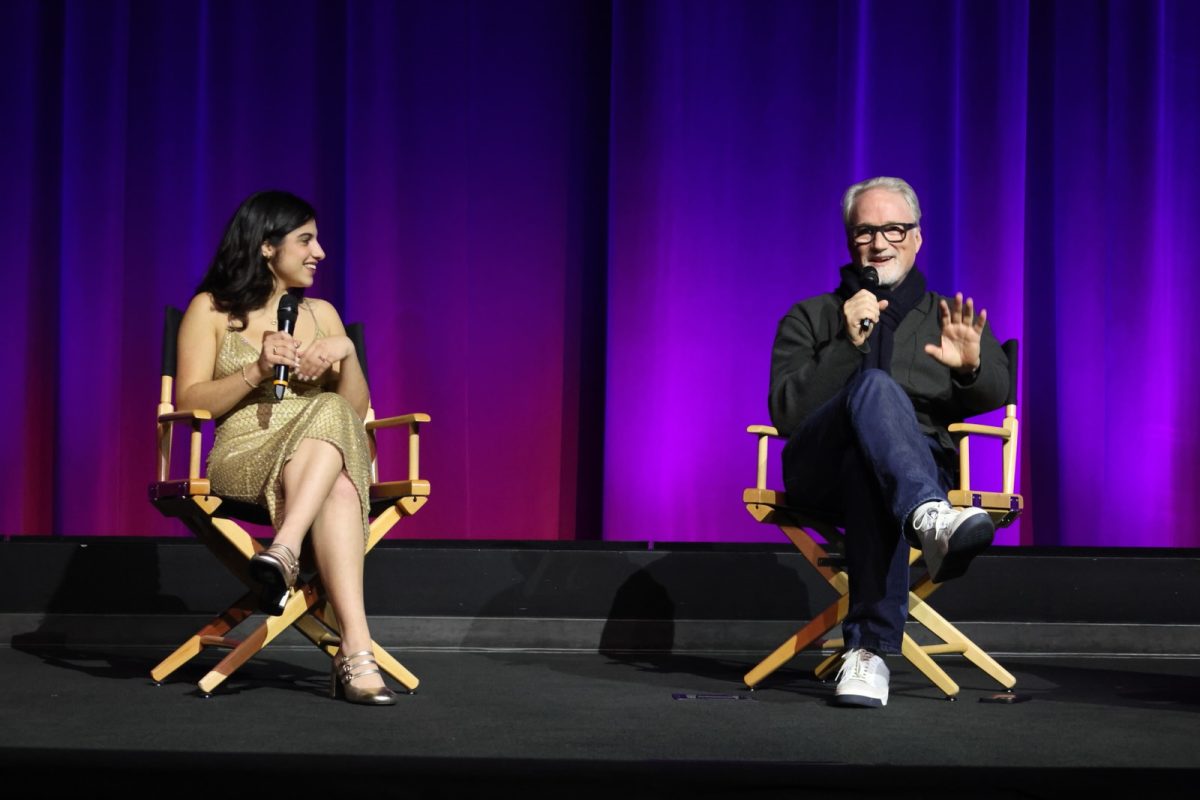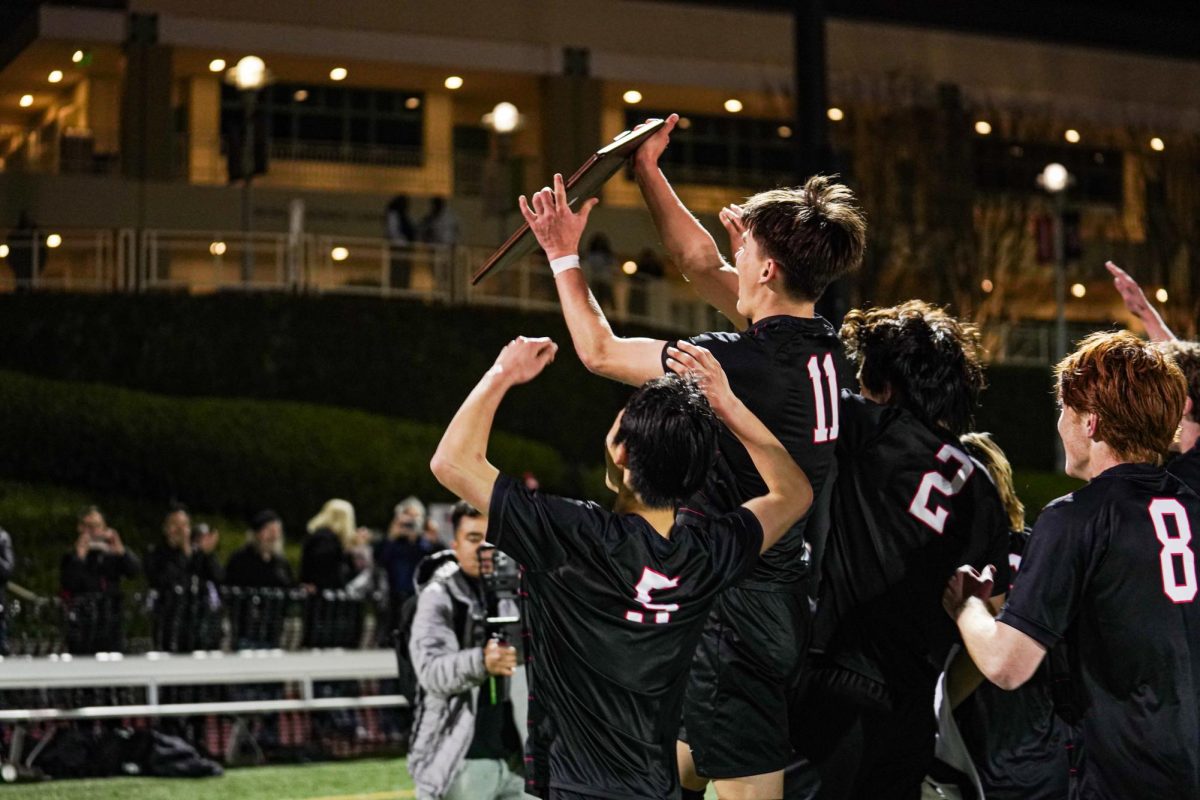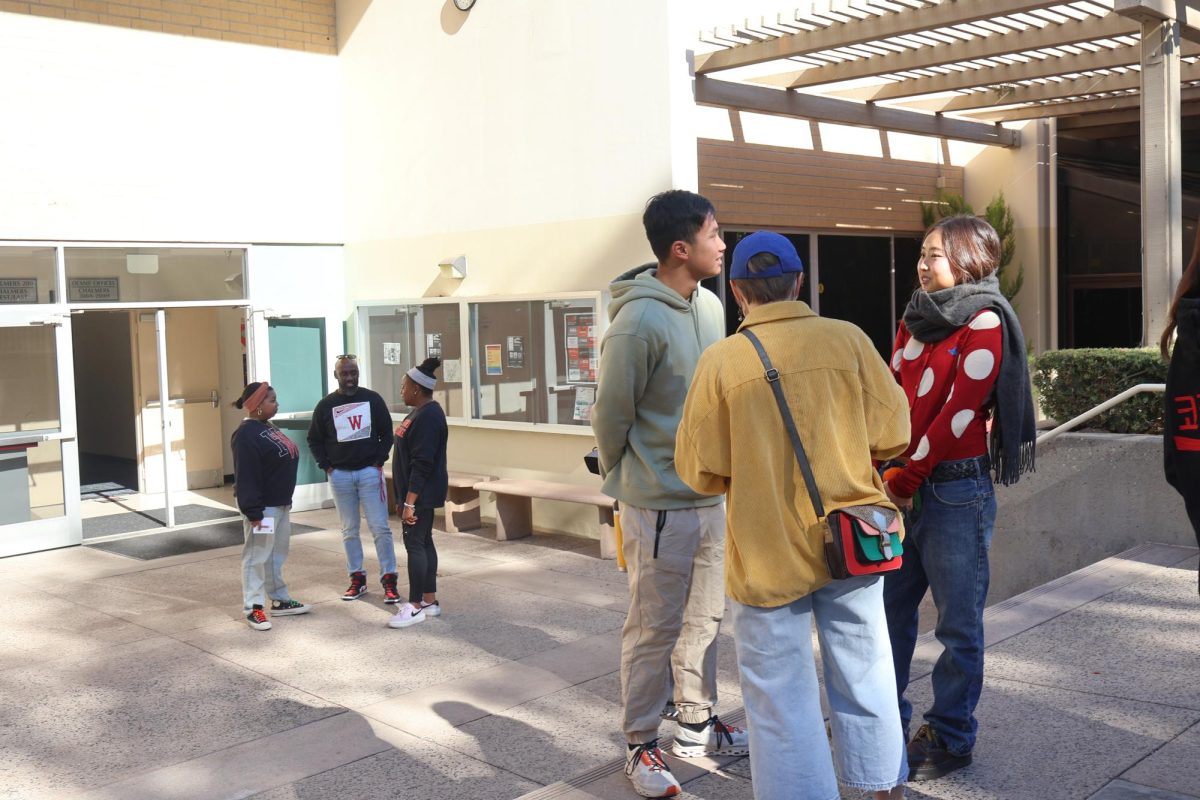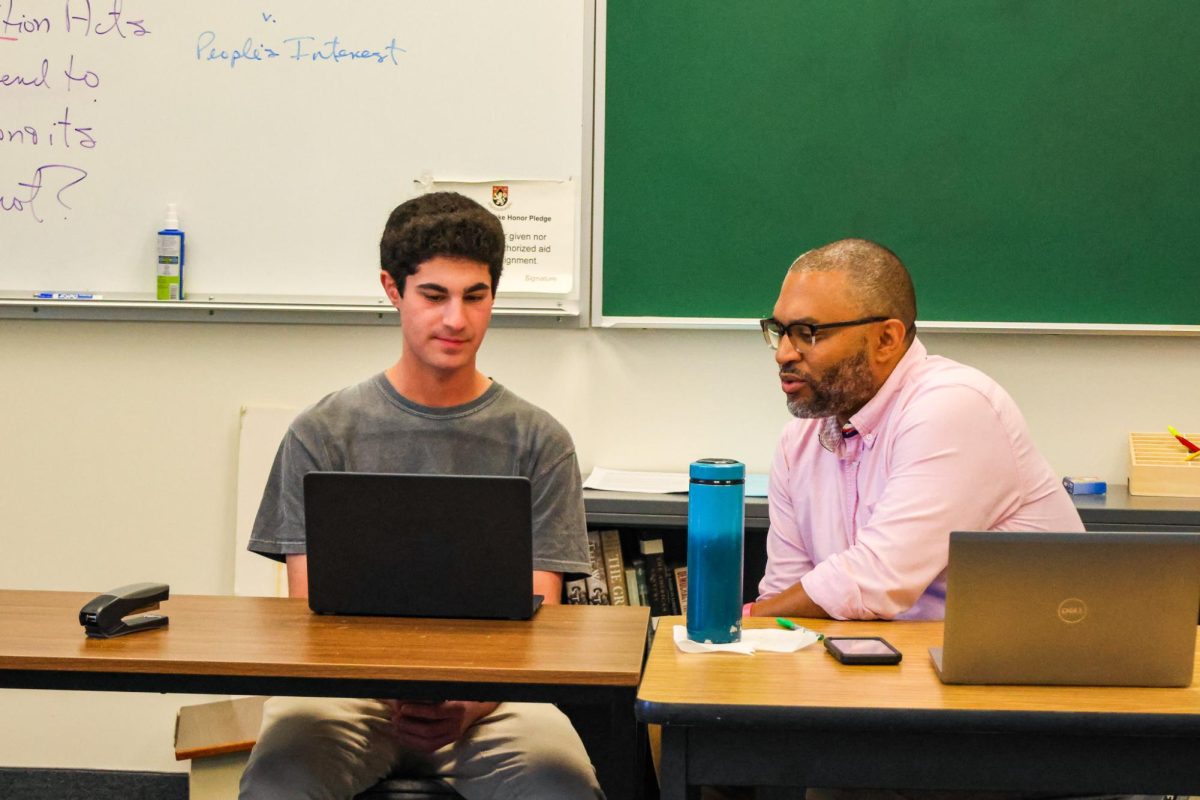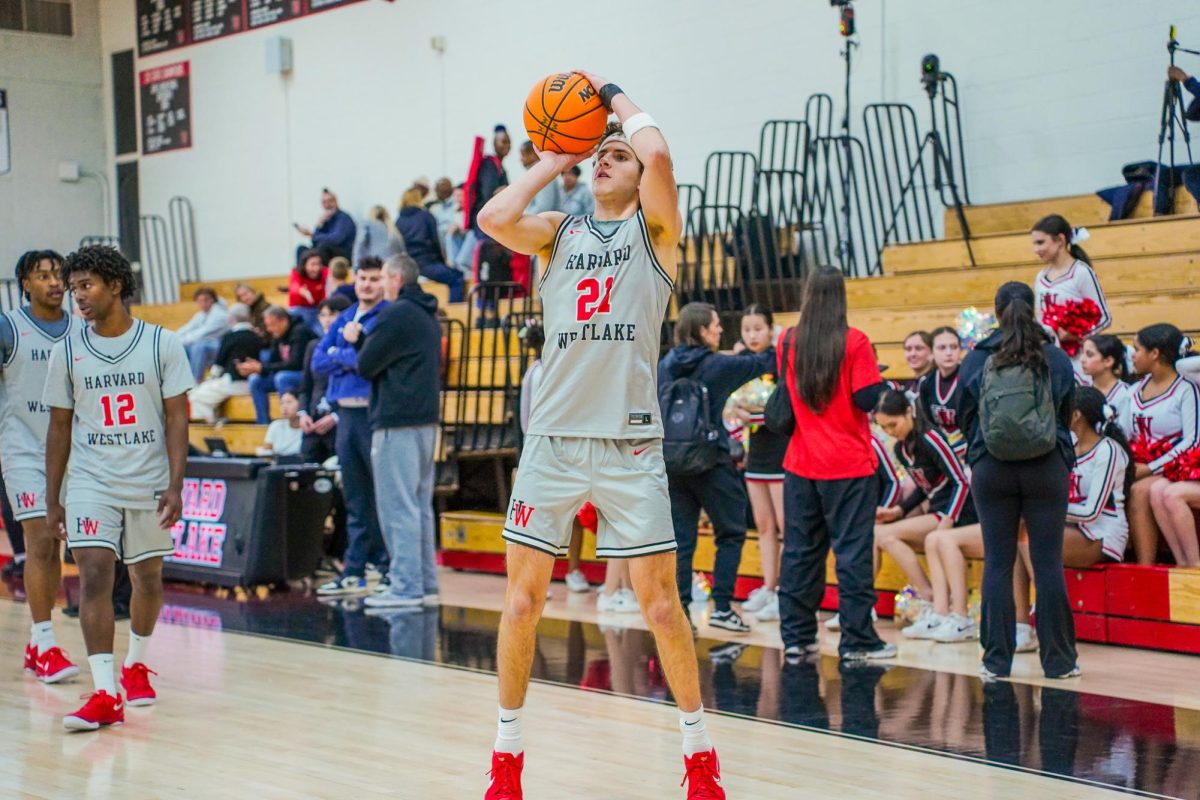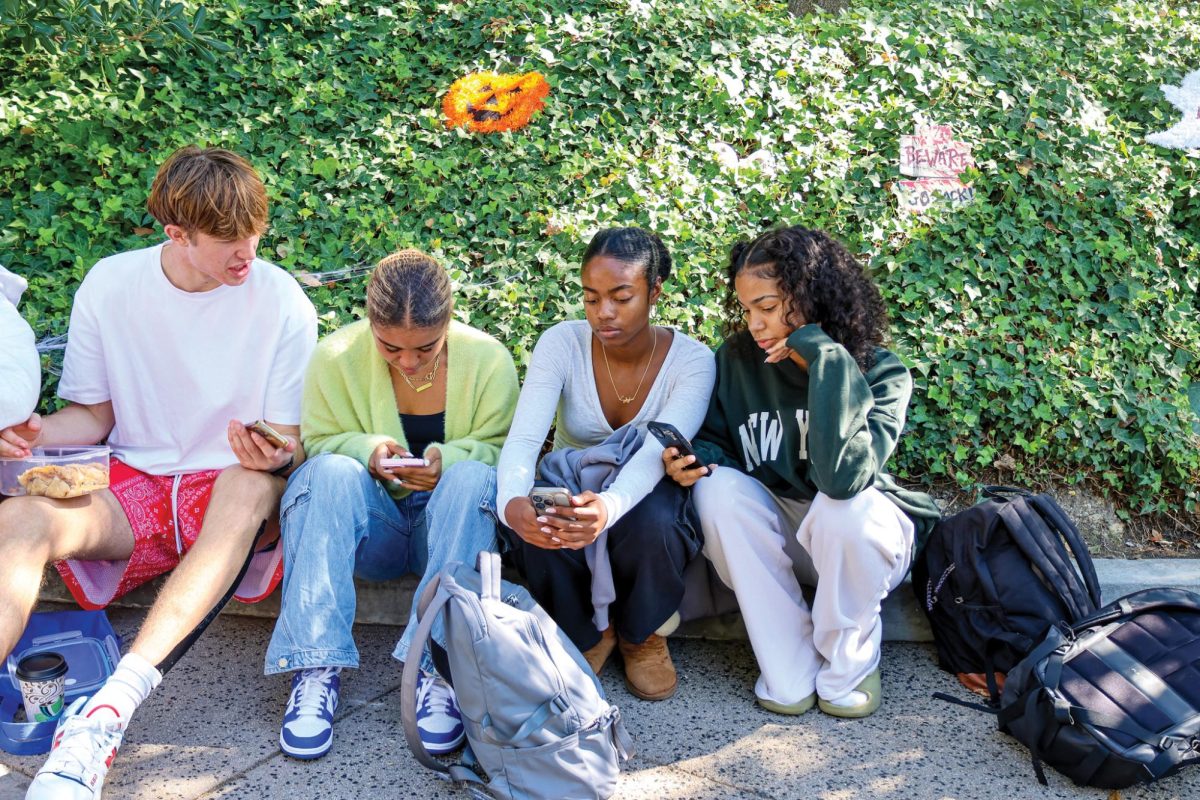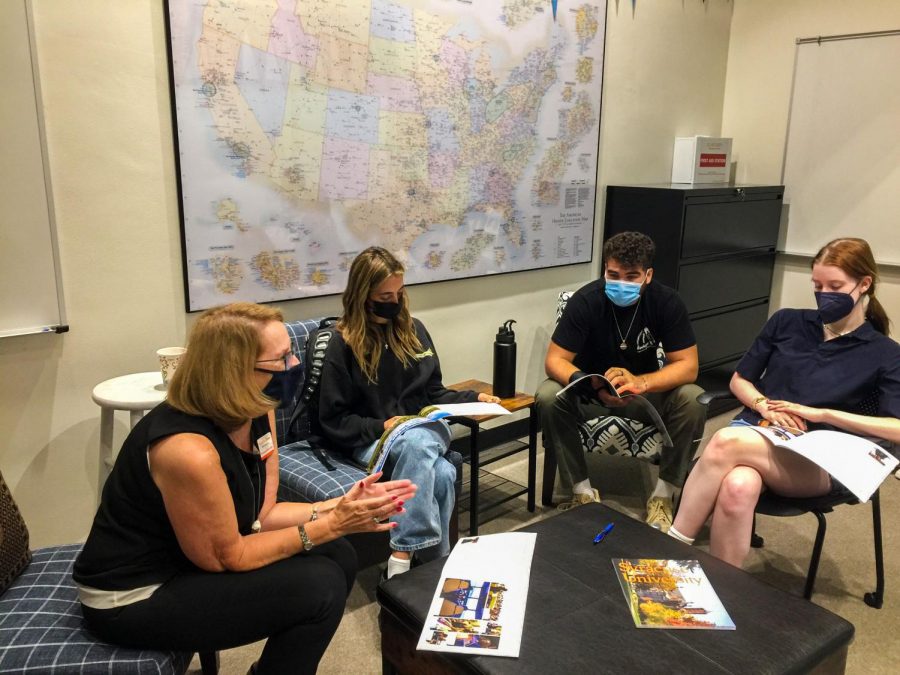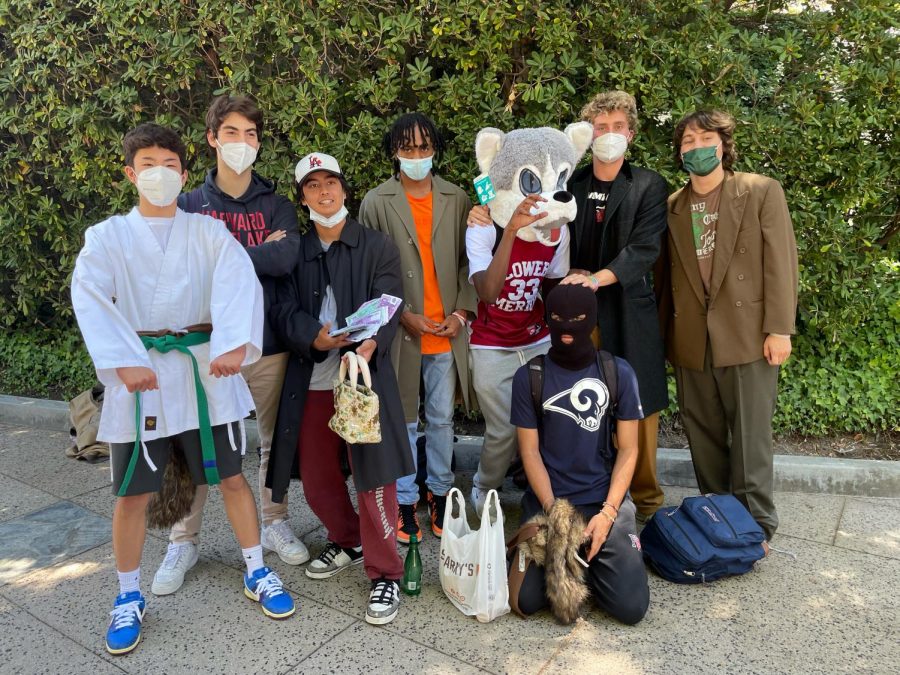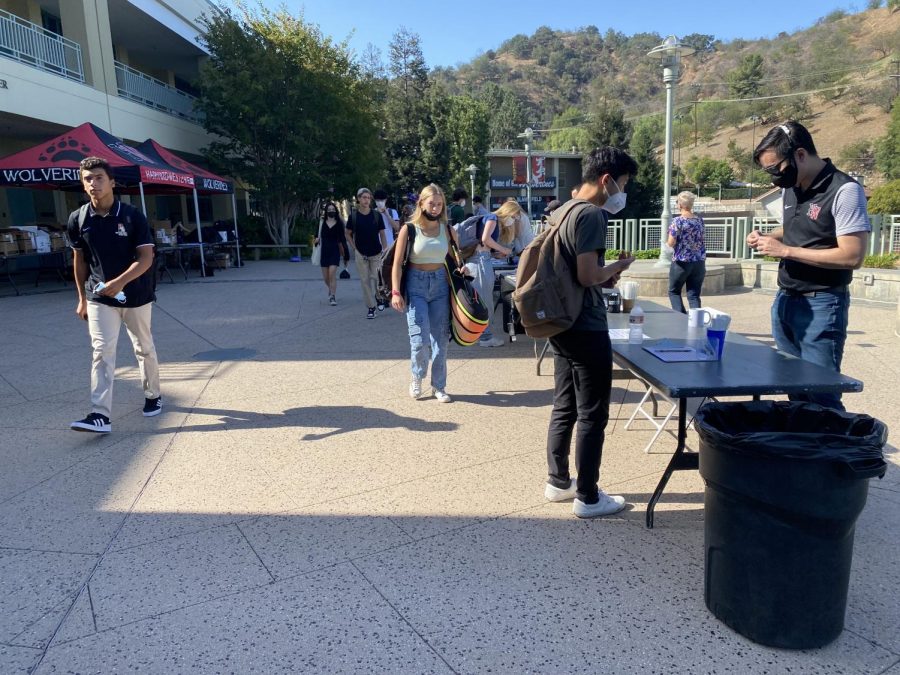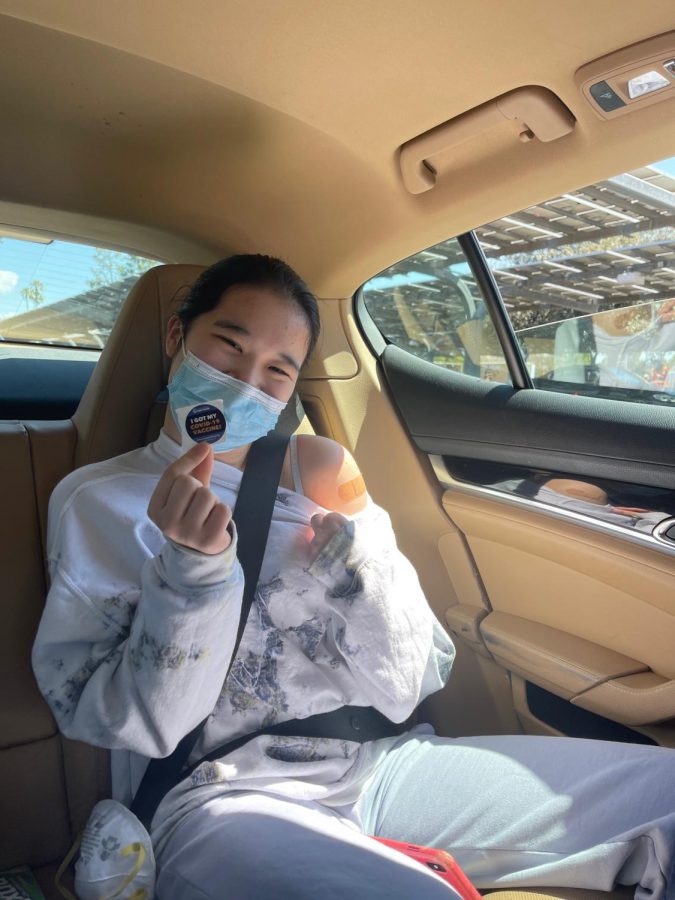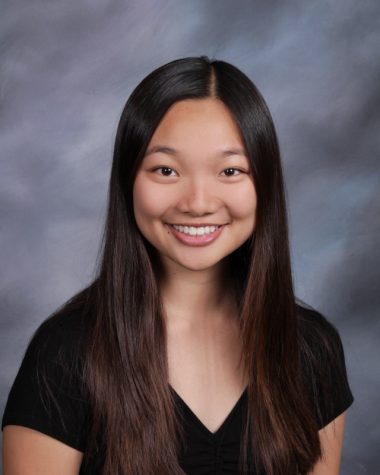After earning the Design Award Sept. 21, robotics subteam 62X set a new record for the earliest VEX California State Championship qualification under Team 62’s division. Adjudicators at the qualifying competition, which took place at Arnold Beckman High School, granted 62X the award for creating an engineering notebook. The notebook chronicled all of the team’s design choices and the reasoning behind their decisions.
Subteam 62X receives Design Award
Subteam 62X, comprised of Justin Ansell ’20, Katie Mumford ’20 and Dean Reiter ’20 formulated the idea behind their robot during the summer and began building in July, Mumford said. After two unsuccessful prototypes, the team finished constructing their robot Sept. 20 and presented its engineering notebook to the judges Sept. 21.
“It was a really gratifying experience to win the Design Award, as it’s one of the two highest awards you can get at a competition,” Mumford said. “Since there were over 40 teams there, it was a big honor to win such a prestigious award, and it’s a really great feeling to already be qualified for the state championship.”
Subteam 62A makes it to quarterfinals
Subteam 62A, consisting of Yvette Copeland ’21, Jake Futterman ’21, Isaiah Jeter ’21, Reggie Kim ’21 and Chris Ladreyt ’21 also participated in the tournament, winning four sets before it was eliminated in the quarterfinals. Futterman said his team hopes to implement several structural changes to its robot in order to improve its performance before the next competition.
“We definitely got a sense of some of the problems with our robot [at the tournament],” Futterman said. “For example, there were some problems with the robot fitting [within the sizing constraints of the competition] and with it deploying, so we’re definitely going to be working on those issues leading up to the next tournament.”
Subteams works to improve in future tournaments
Robotics coach Andrew Theiss said that both subteams demonstrated an intense focus that, while mostly beneficial, occasionally prevented team members from clearly analyzing potential problems with their robots. Nevertheless, he remains confident that their strong work ethic will enable them to succeed in future tournaments.
“The teams are putting in so much effort that the velocity of their progress can almost be a detriment to their success,” Theiss said. “It’s very difficult to gain that perspective if you’re always pushing 100 percent. But in terms of the teams and the issues they face, there’s nothing that they can’t already overcome, and they’re going to put in the work to overcome it.”





























